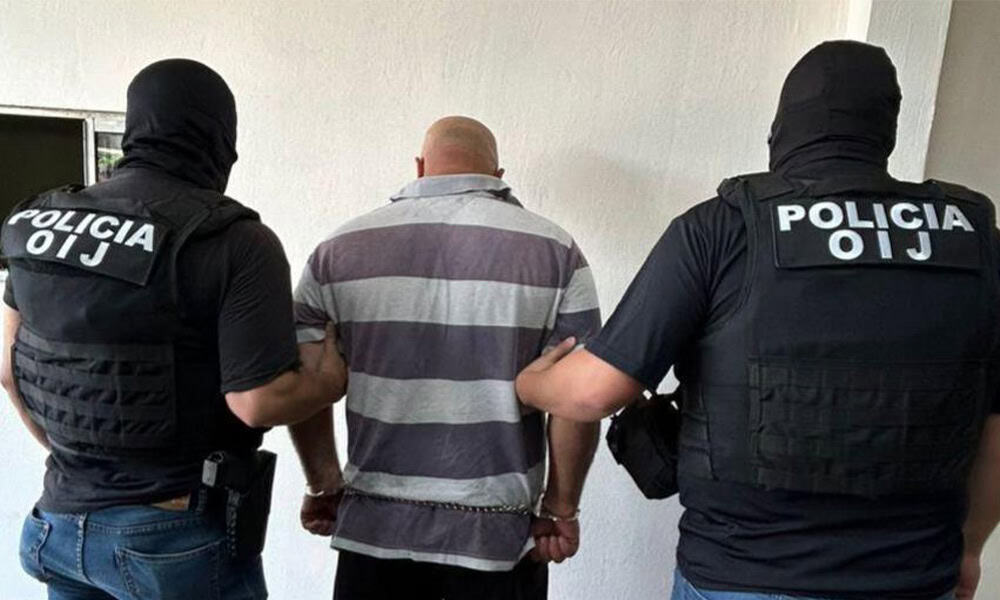Authorities in Costa Rica arrested four men from the southern part of the country, all wanted by the United States for extradition on charges related to international drug trafficking.
The Judicial Investigation Agency (OIJ) and the Drug Control Police (PCD) carried out the joint operation. OIJ Director Randall Zúñiga stated that the suspects hail from Golfito and Coto Brus cantons. They allegedly belonged to a group based in Golfito that moved cocaine shipments from Colombia through Costa Rica to Guatemala, Mexico, and ultimately the United States.
Investigators say the organization handled the transport between 2017 and 2020, using boats, planes, and cargo trucks to move the drugs. Two of the arrested men are William Iván Ramírez Arguedas, known as “Kimba” or “Rambo,” and Gerardo Castro Muñoz, known as “Lalo” or “Precioso.” The PCD detained the other two, whose names have not been released.
Zúñiga explained the group’s methods: “This organization, based in Golfito, apparently managed the transport of cocaine by sea, air, and land from Colombia, passing through Costa Rica to Guatemala and Mexico for import into the United States.”
The arrests mark another step in Costa Rica’s efforts to combat drug networks that use our country as a transit point. With its long coastlines and proximity to major producers like Colombia, Costa Rica has seen a rise in such activities over the years. Local forces often work with U.S. agencies, including the Drug Enforcement Administration (DEA), to target these operations.
Following their capture, the four men will appear before a Costa Rican criminal court. A judge will decide on temporary detention while the extradition request from the U.S. District Court for the Southern District of California proceeds. This process can take time, as Costa Rican law requires thorough review to protect citizens’ rights.
These detentions come amid ongoing cooperation between Costa Rica and the U.S. on narcotics issues. Recent reforms have made it easier to extradite nationals, a change that has led to several high-profile cases. For instance, earlier this year, authorities extradited other suspects linked to similar crimes.
Residents in the southern zones, where poverty and limited job options persist, sometimes get drawn into these networks. Golfito, a port town, has long been a hub for maritime traffic, making it attractive for smugglers. Officials hope these arrests disrupt the flow and deter others.
Zúñiga emphasized the importance of international partnerships in tackling these groups. The OIJ continues to monitor and investigate related activities to prevent further involvement.
As the case moves forward, more details may emerge about the suspects’ roles and the evidence against them. For now, the arrests represent a win for law enforcement on both sides of the border.






